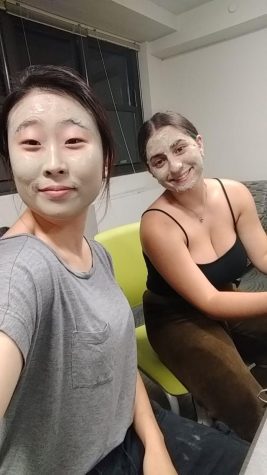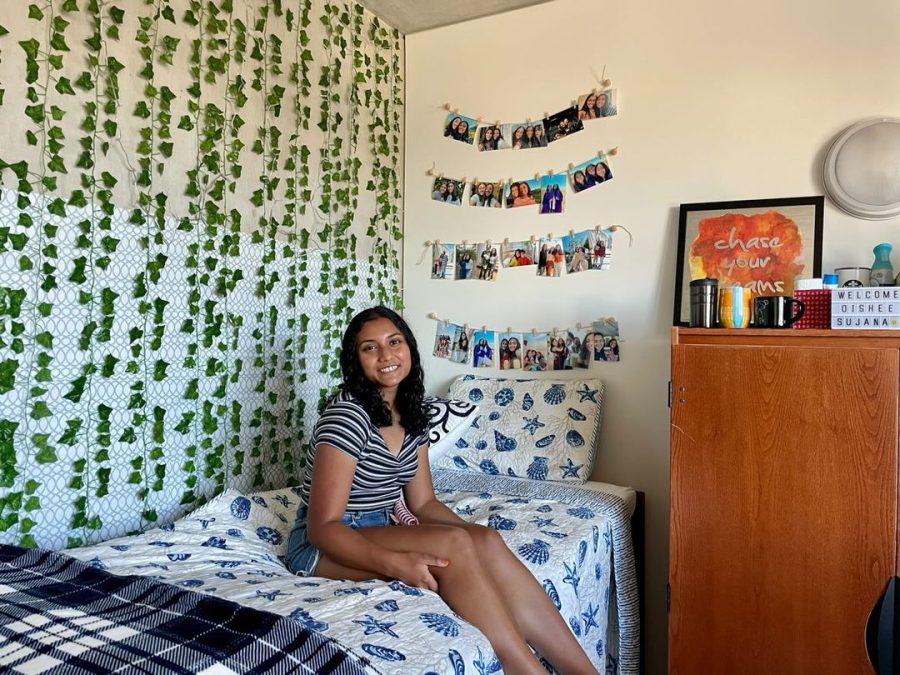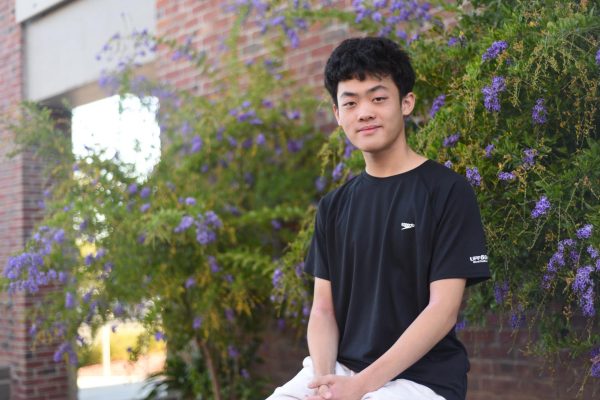Moving in
Exploring how former MVHS students experience dorm culture
October 13, 2022
The moment MVHS alum ‘20 Yoanna Lee moved into her dorm at Franklin & Marshall College, she was greeted with an immediate 72-hour quarantine. She remembers that many COVID restrictions were in place, such as food being delivered to her door and only leaving her dorm to use the bathroom.
“My mom flew all the way from [Philadelphia] to help me get there and unload,” Lee said. “She was going to buy me dinner, but they said [that she] had to leave. My mom [was] crying for hours from the window saying bye, and it was really heartbreaking.”
While COVID restrictions have died down, Lee’s experience reflects the independence and change that students face while going to college, especially in dorms. MVHS alum ‘21 Oishee Misra highlights how she spent less time in her dorm than she normally would at home.
“In college, your schedule is a lot more malleable because you get to pick when your classes are,” Misra said. “Typically, there are a lot more breaks in between classes, and you can have late night classes. The biggest change for me was figuring out what I wanted to do [during] those empty spaces in between my classes. Because of that, I ended up spending a lot less time in my dorm than I would [have spent] at home in my room.”
MVHS alum ‘22 Leela Srinivas echoes Misra’s feelings regarding her newfound independence, as she quickly realized she lacked the necessities she would typically expect at home.
“When my parents left, I was crying from moment to moment, and I was like, ‘Damn, I don’t have tissues,’” Srinivas said. “What am I supposed to do?”

Misra shares that living in dorms exposed her to a unique environment. Rooms in resident halls often house two to four people, and multiple rooms are connected to a shared bathroom, with amenities like kitchens and study spaces nearby. Some colleges like Misra’s also offer on-campus apartments.
This communal living helped facilitate a social environment for Misra amid her newly gained independence.
“This was my first time living with other people, and I actually really enjoyed it,” Misra said. “I didn’t think I would because I’m pretty introverted, and I don’t like being around people all the time. But I feel like when you go to college, everything is new. You don’t know anyone, so it really helps [to live] with other people. A lot of the time, your first friends at college are your roommates.”
Dorms also have resident advisors (RAs) or other students that help enhance dorm culture and increase bonding. Lee’s college house elects people to a parliament to host dorm events, similar to how Leadership at MVHS hosts on-campus events.
“One thing we do is sundaes on Sundays,” Lee said. “They always get ice cream for us on Sundays at 9 p.m. The whole dorm goes downstairs, and we’re all eating ice cream.”
MVHS alum ‘21 Harini Aru believes that dorm events are a key part of getting to know others, but a lack of effort from her RA made it difficult for her to bond with her roommates.
“I know some RAs were really proactive and organized a lot of floor events, and that created a lot of bonding among people living on the same floor,” Aru said. “A lot of [my friends] became really close friends with other people on their floor. Our RA didn’t put [in] that much effort. For me [and my roommates] personally, we would smile and say hi, but we were just roommates in the end. I found a lot more of my friends through my classes and going to events outside [the dorm].”
Srinivas shares an experience similar to Aru’s, saying that most of her relationships formed outside her dorm, which is where she typically was.
“The time spent in your dorm [compared to] the time spent at home is wildly different,” Srinivas said. “You can basically spend all of your time outside of your dorm if you want to, which is pretty different, especially growing up in Cupertino, where everything is 10 minutes away by car. I’m more likely to make friends in classes or clubs since [those are where I’ve mainly been].”
MVHS alum ‘21 Patrick Nguyen describes that sometimes, other factors affect alum’s abilities to become friends with people in their dorms.
“We lived with an RA, and he was really annoying,” Nguyen said. “He didn’t clean anything. Sometimes people will just be screaming and stomping around while other people will actually be respectful of your boundaries. [One of my friend’s] roommates was failing [class] and they started freaking out and throwing stuff around the dorm. Some of [my friends] actually did end up moving out because it was such a hostile environment.”
To avoid causing issues for roommates, Nguyen suggests that before coming to college, MVHS students should learn basic skills like doing laundry and cleaning up after themselves. He also recommends that students create an environment in their dorm that will foster productive learning. For Lee, personalizing her dorm created a safe space she felt best in.
“Be excited and get creative with how you’re going to decorate your room,” Lee said. “Your dorm room is going to be the place that you come home to rest. Even though you’re going to live there temporarily, [still] make it the place where you feel like you’ll be happy, because there aren’t a lot of places on campus that can do that. You have to create your own safe space.”
Misra also agrees with the sentiment of finding ways to put worries aside. While the transition to college might be stressful, Misra says her initial worries regarding moving and losing valuable friendships diminished with time.
“Honestly, when you get to college, all of that [worry] kind of fades away,” Misra said. “It’ll work out. Dorm life is one of the most exciting things about college. There’s something very special about the friendships you make at college — [it’s] a once in a lifetime thing. You’ll get to stay in a place with so many other people in a walkable community where your whole life will be on this little campus, and I think it’s just a very special thing.”


















